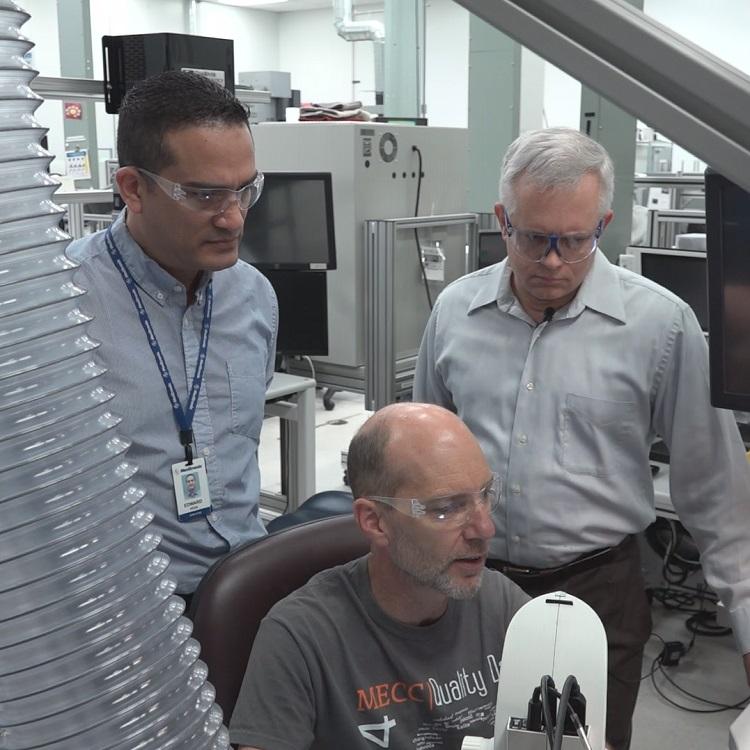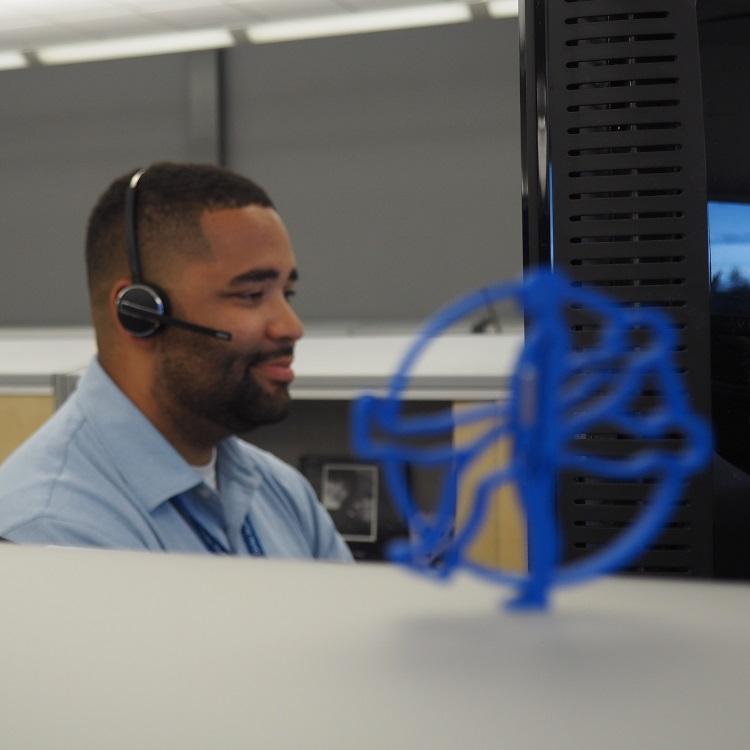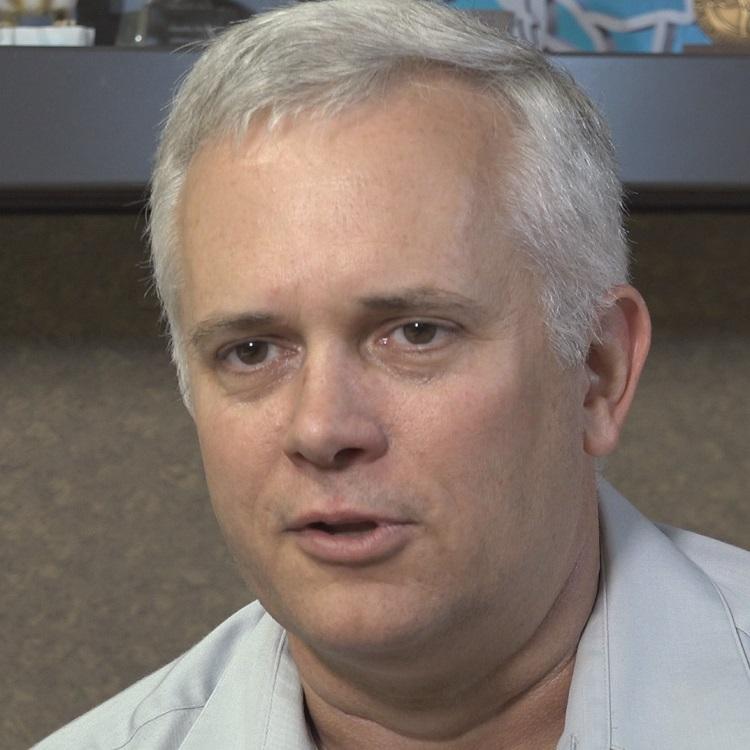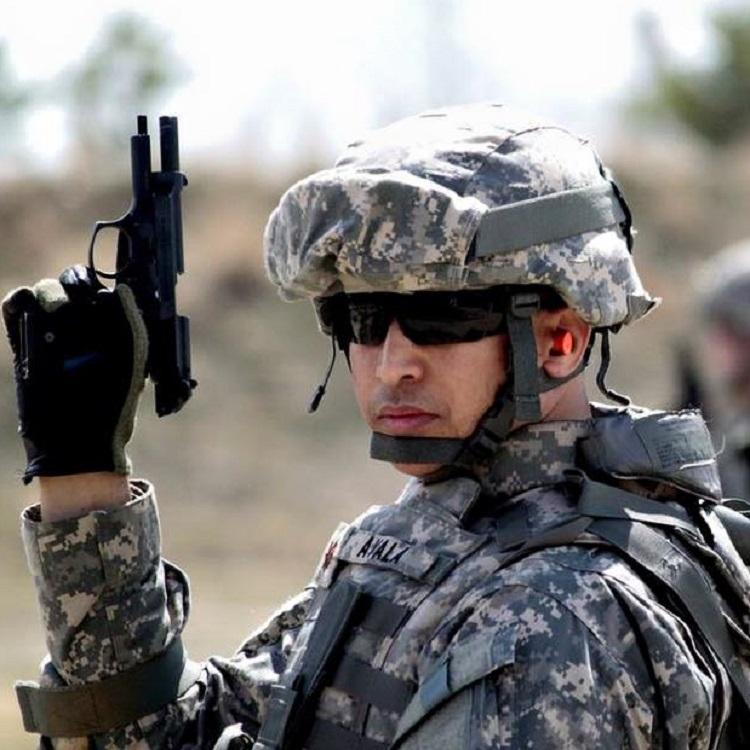Military Veterans Bring Unique Skills to Medtronic
Medtronic works to address veterans’ issues
Military Veterans Bring Unique Skills To Medtronic
When Medtronic patients call with questions about their medical devices, they’re in steady hands when they reach Steve Kregel.
“You have the opportunity to help people who are generally going through a tough transition,” Kregel said. “Many have just received their first medical implant. They don’t know what to expect and you’re there as a calming force in their turbulent times,” he said.
"Attention to detail and work ethic are some of the biggest benefits you'll get in hiring veterans."
Kregel knows all about handling handle medical emergencies.
As a Navy medic, he served for 10 months in Iraq. He says the military helped him develop skills that would benefit any employer.
“Attention to detail and work ethic are some of the biggest benefits you’ll get when hiring a veteran,” Kregel said. “They may not know all the nuances of the position but I guarantee they will learn at least as quickly as other job candidates,” he said. Learn more about Steve and his role at Medtronic.
Kregel is among more than 1,100 military veterans who work at Medtronic. As the nation pauses to honor America’s fallen soldiers this Memorial Day, Medtronic continues to make specific efforts to address veterans' issues, including employment.
Medtronic and its Veteran Employee Resource Group (VERG), which has more than 400 members, held a forum during last year’s Congressional Medal of Honor convention in Minnesota, to discuss job issues facing veterans. (See “Medtronic Honors Congressional Medal of Honor Recipients.”)
Veterans urged all employers to look beyond resumes to the skills and intangibles that military service teaches.
“If companies just understand the assets that veterans have, they’ll want to utilize them. It’s a huge, almost untapped resource, and corporations need to take advantage,” said Ty Carter, a Medal of Honor recipient who participated in the panel.
Mission, Mentoring and Teamwork
After 20 years in the Marines, Tim Murphy turned down job opportunities in the defense industry for a job at Medtronic. He now leads a team of engineers at the Medtronic Energy and Component Center (MECC), focusing specifically on product quality.
Murphy said the team-oriented skills of military veterans fit well in the business environment.
“In business most anything is going to require your ability to work with other groups and work cross-functionally and that’s something you realize quickly in the military. It’s all of us pulling together in order to get that mission accomplished,” Murphy said. Learn more about Tim and his role at Medtronic.
"It was a great opportunity to serve my country without worrying about my job when I got home.”
Medtronic VERG members like Jose Ayala help mentor fellow veterans, even those who don't work at Medtronic.
When the Navy recalled Ayala to active duty in Afghanistan, Medtronic made up the difference between his military and company pay.
“I continued to be an active employee at Medtronic, so it was a great opportunity and a great experience, to serve my country again without worrying about my job when I got home,” he said. Learn more about Jose and his role at Medtronic.
Kregel is impressed by the Medtronic focus on support for veterans. “I think Medtronic is the most supportive group or company I’ve met since I left the military in terms of veterans’ issues,” he said.
It’s a commitment that Medtronic will continue to follow.
“We recognize there are skills unique to military veterans that greatly benefit corporations, and I’m pleased with how our management and leadership have embraced veterans and want to do even more,” said Rob Clark, vice president of communications at Medtronic and a former Air Force officer.
Veterans interested in careers at Medtronic can learn more at http://www.medtronic.com/us-en/about/careers.html.






